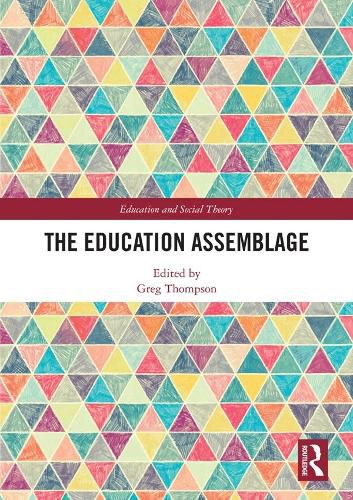Readings Newsletter
Become a Readings Member to make your shopping experience even easier.
Sign in or sign up for free!
You’re not far away from qualifying for FREE standard shipping within Australia
You’ve qualified for FREE standard shipping within Australia
The cart is loading…






This collection works with the philosophy of Gilles Deleuze, and his collaborator Felix Guattari, in the context of education. Deleuze once remarked that we get the philosophy we deserve because of the questions that we ask. Deleuze saw that the work of philosophy was the creation of concepts - those working with his theory are admonished not to follow but to think. For Deleuze, education remained a philosophical problem because it is connected to problems of language, authority, meaning and what it means to learn and think. With that in mind, these contributions were chosen because they apply this ethic to education to think again about what constitutes a problem. In this book, Deleuze’s conceptual contributions such as affect, assemblage, the logic of sense and control society and modulation are put to work to consider various educational problems in educational settings. What brings these contributions together, apart from working with Deleuze, is that they present education as a problem requiring new concepts. Readers are invited into an encounter with Deleuze’s thought because of the situations in which we find ourselves.
The chapters in this book were originally published as journal articles by Taylor and Francis journals.
$9.00 standard shipping within Australia
FREE standard shipping within Australia for orders over $100.00
Express & International shipping calculated at checkout
This collection works with the philosophy of Gilles Deleuze, and his collaborator Felix Guattari, in the context of education. Deleuze once remarked that we get the philosophy we deserve because of the questions that we ask. Deleuze saw that the work of philosophy was the creation of concepts - those working with his theory are admonished not to follow but to think. For Deleuze, education remained a philosophical problem because it is connected to problems of language, authority, meaning and what it means to learn and think. With that in mind, these contributions were chosen because they apply this ethic to education to think again about what constitutes a problem. In this book, Deleuze’s conceptual contributions such as affect, assemblage, the logic of sense and control society and modulation are put to work to consider various educational problems in educational settings. What brings these contributions together, apart from working with Deleuze, is that they present education as a problem requiring new concepts. Readers are invited into an encounter with Deleuze’s thought because of the situations in which we find ourselves.
The chapters in this book were originally published as journal articles by Taylor and Francis journals.